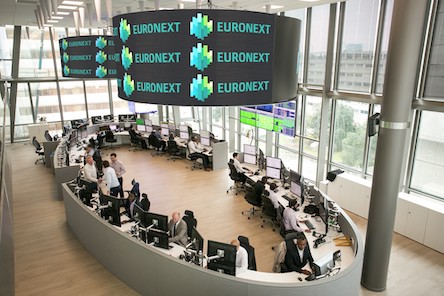Ireland is the European ETF (exchange-traded funds) domicile with the highest assets under management at €552.5 billion, followed by Luxembourg with €203.6 billion, according to Refinitiv Lipper.
Germany has €44.9 billion in ETF assets, Switzerland has €32.0 billion and France has €31.9 billion.
“As Ireland (63.41%) and Luxembourg (23.37%) account 86.78% of the overall assets under management in the European ETF industry, it is worthwhile to analyse the structure of product types in these two domiciles …” wrote Detlef Glow, Head of EMEA Research at Refinitiv Lipper.
“While ETFs using optimized replication to recreate their underlying indices (59.54%) are the majority in Ireland, this replication methodology has the lowest market share in Luxembourg (16.29%).
“ETFs using full replication hold the majority of assets under management of ETFs domiciled in Luxembourg (43.60%).
“Meanwhile, the strategy is the second most used replication methodology for ETFs domiciled in Ireland (33.61%).
“ETFs using synthetic replication, in particular swap-based methodologies, hold 40.12% of the assets under management in Luxembourg, while their market share in Ireland is only 5.05%.
“In addition to this, 1.80% of the assets under management in Ireland are held by ETFs using ‘other’ replication methodologies.”
Glow added: “As ETFs are registered for sales in different countries and listed on multiple exchanges and trading venues, they can be considered as true cross-border products.
“Therefore, it is not surprising that the majority of ETFs traded in Europe are domiciled in the international fund hubs of Ireland and Luxembourg …
“Even as ETFs are true cross-border products, there are some regulatory requirements that force the promoters of ETFs to domicile ETFs in countries other than Ireland and Luxembourg to serve investors.
“One example of this is precious metals ETFs domiciled in Switzerland.
“The Swiss regulator allows ETFs to invest in a single precious metal such as gold, silver, or platinum, which is not an eligible investment objective for ETFs under UCITS regulations.
“Another reason for listings outside the international fund hubs might be tax advantages for investors that use local domiciled products.”
